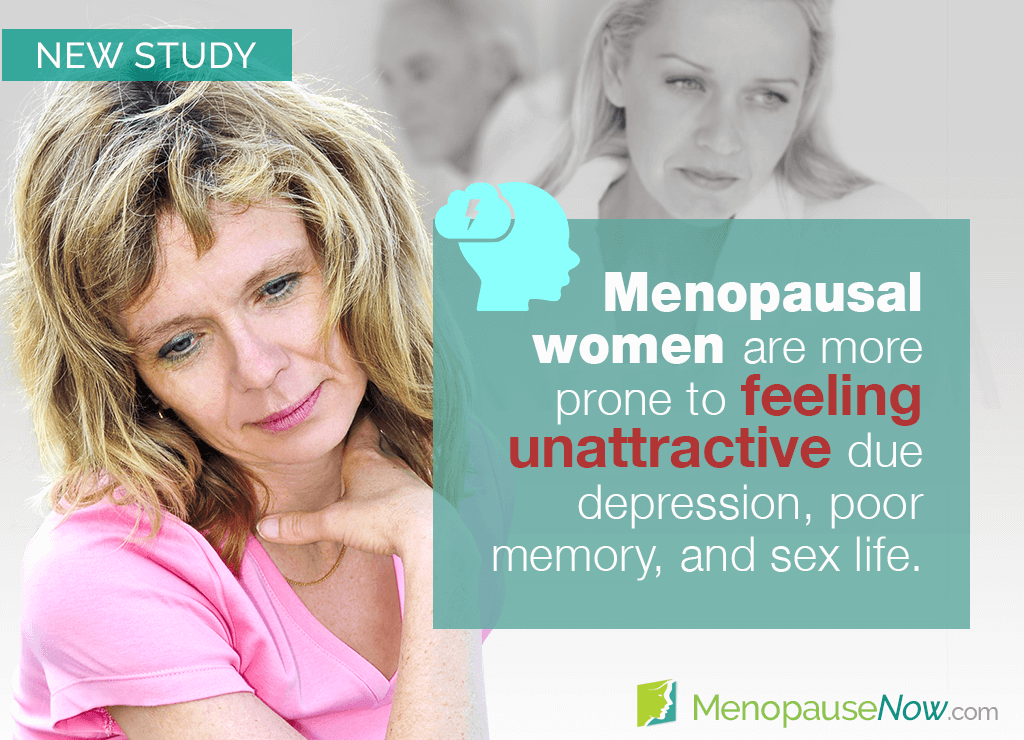There is an abundance of scientific studies on menopause symptoms, including their effects on the body and treatment methods. However, there is not much data on how the midlife changes affect women's self-image.
Japanese scientists conducted a cross-sectional study to investigate the prevalence of feeling unattractive in women passing through the transition as well as their associated risk factors.
Study Design
Researchers analyzed data from 351 Japanese peri- and postmenopausal women, between the ages of 40 to 76. Their records were collected as part of the Systematic Health and Nutrition Education Program, which took place at the Tokyo Medical and Dental University Hospital a few years earlier.
The Menopausal Health-Related Quality of Life Questionnaire (MHR-QOL) and the Hospital Anxiety and Depression Scale (HADS) were used to assess women's symptoms and quality of life.
For reference, “feeling unattractive” was defined as feeling less attractive than before three to four times per week or more.
Study Findings
The analysis of data showed that 33.6% (118) of women were bothered by feeling unattractive for more than half of the week. A more detailed summary of the answers are as follows:
- 23.6% (83) felt less attractive than before almost every day
- 10% (35) felt less attractive than before 3-4 times weekly
- 20% (71) felt less attractive than before 1-2 times weekly
- 46.2% (162) felt less attractive than before 0-1 times a month
Researchers then compared the 118 women who reported feelings of unattractiveness with the remaining 233 women who were not bothered by such feelings.
They found significant differences between the two groups, with poorer scores of the following characteristics present in women that reported feeling unattractive:
- Body composition: body fat percentage, waist circumference, and waist-to-hip ratio
- Physical fitness: hand-grip strength and reaction time
- Genitourinary symptoms: frequent urination, urge incontinence, and vaginal dryness
- Physical scores: both somatic and vasomotor symptom scores
- Psychological scores: poor memory, difficulty concentrating, dissatisfaction with sexual relationship, anxiety and depression, and sleep problems scores
What Does It Mean?
The results of this study show that throughout the menopause transition, women are more prone to feeling unattractive than before the transition.
The individual risk factors that were associated with such feelings included vaginal dryness, incontinence, depression, poor memory, and dissatisfaction with sexual relationship, among others.
Identifying the underlying reasons for lower self-esteem during menopause is necessary for taking proper steps towards resolving them and ensuring better quality of life among middle-aged women.1
Sources
- Climacteric. (2017). Feelings of unattractiveness in peri- and postmenopausal women are associated with depressed mood, poor memory and unsatisfactory sexual relationships. Retrieved February 10, 2021 from https://www.tandfonline.com/doi/abs/10.1080/13697137.2017.1293647
Footnotes:
- Better Health Channel. (n.d.). Self-esteem. Retrieved February 10, 2021 from https://www.betterhealth.vic.gov.au/health/healthyliving/self-esteem

